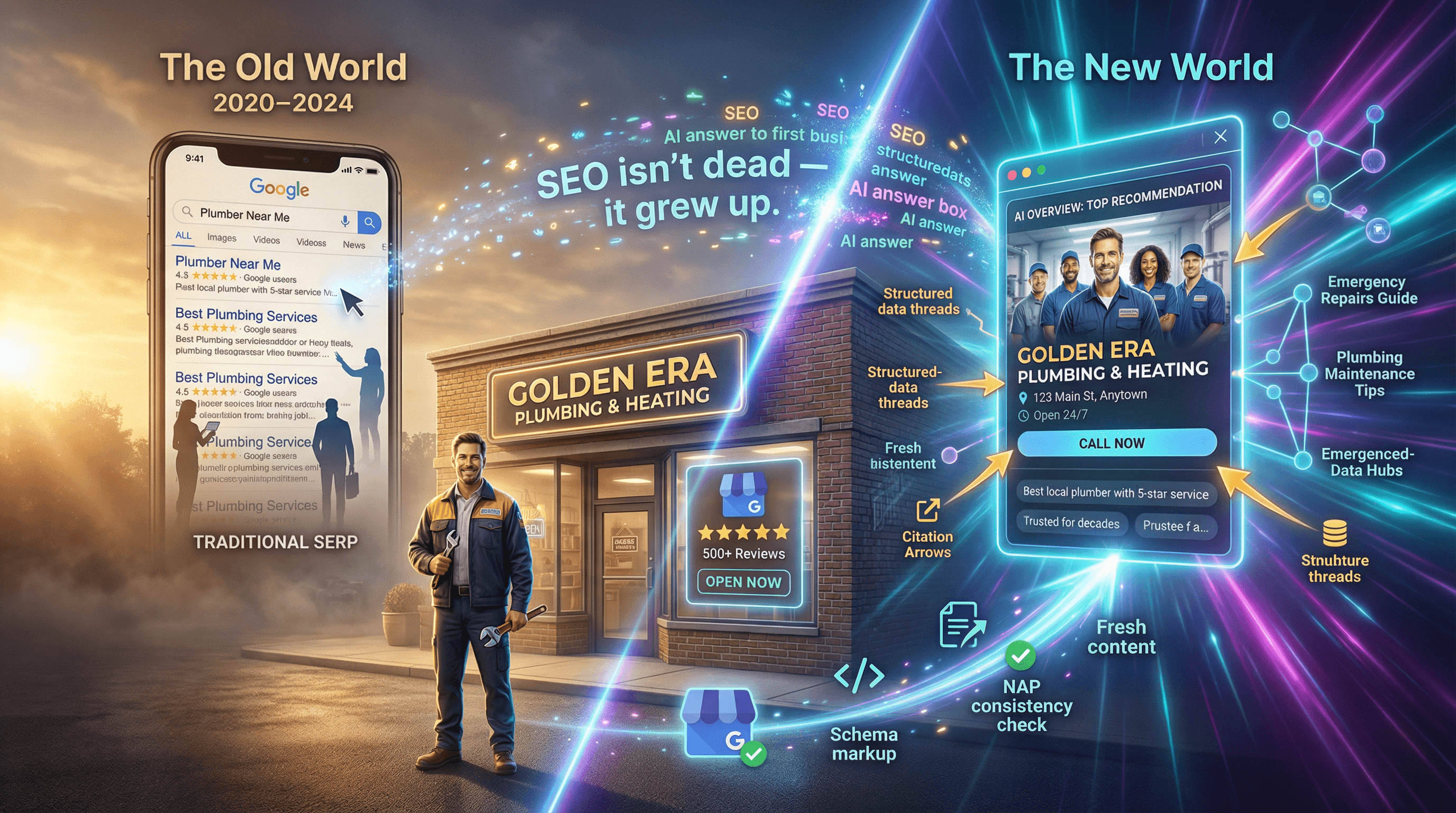Growth Partner
Unlock business expansion with a growth partner. Learn how collaboration fuels growth, from market entry to revenue streams.
Thinking about growing your business? It’s a big step, and sometimes you need a little help. That's where a growth partner comes in. They’re like a co-pilot for your expansion plans, bringing new ideas and resources to the table. We’ll look at how finding the right partner can really make a difference in reaching your business goals, from figuring out where you want to go to making sure everyone’s on the same page.
Key Takeaways
A growth partner can help you understand the market and where your business fits in.
They bring different skills and a shared vision to help your company expand.
Working with a partner can speed up getting into new markets and boost sales.
The people involved are important for clear communication and learning as you grow.
Smart partnerships can help your business scale up and last for the long run.
Understanding Your Expansion Terrain
Thinking about growing your business is exciting, but it's not just about wanting more. You really need to know where you're going and what you're getting into. It’s like planning a big trip – you wouldn’t just hop in the car without looking at a map, right? Same idea here.
Charting the Path Forward
Before you even think about taking the next step, you need a clear plan. This isn't just a wish list; it's a detailed guide. What exactly does success look like for this expansion? What are the small wins along the way? Setting these markers helps you stay on track and know if you're actually moving forward.
Define your expansion goals: Are you aiming for more customers, new product lines, or entering different regions?
Set measurable targets: How will you know if you've hit your goals? Think numbers, not just feelings.
Outline the steps: Break down the big goal into smaller, manageable tasks.
A solid plan acts as your compass. It helps you make smart decisions when things get complicated.
Navigating Market Dynamics
Markets are always changing. What worked yesterday might not work tomorrow. You need to pay attention to what's happening around you. Are customer tastes shifting? Are there new technologies popping up that could help or hurt you? Understanding these shifts is key to not getting left behind.
For example, a company selling physical books might notice more people buying e-books. If they don't adjust their strategy, they could miss out on a big part of the market. It’s about being aware and ready to adapt.
Assessing Competitive Landscapes
Who else is playing in the space you want to enter or grow in? You need to know your competition. What are they doing well? Where are they falling short? This isn't about copying them, but about finding your own angle and making sure you have something unique to offer.
Competitor | Strengths | Weaknesses | Market Share |
|---|---|---|---|
Company A | Strong brand recognition | Limited online presence | 25% |
Company B | Innovative products | High pricing | 15% |
Company C | Excellent customer service | Slow to adopt new tech | 10% |
Knowing this helps you figure out where you can stand out and how to position yourself effectively. It’s about finding your unique spot in the market.
The Role of a Growth Partner
Identifying Complementary Strengths
When you're looking to expand, it's not just about finding someone who wants the same thing. It's about finding someone who brings something you don't have. Think about it like building a really complex machine; you need all the right gears and levers, not just duplicates of what you already possess. A good growth partner will have skills or market access that fill your gaps. Maybe they have a strong distribution network in a region you're trying to enter, or perhaps they've mastered a specific technology that could speed up your product development. This synergy is what truly fuels expansion.
Leveraging Shared Vision
It sounds simple, but having a shared vision is more important than you might think. If you and your partner are pulling in different directions, even with the best intentions, you'll just end up spinning your wheels. It means agreeing on the big picture: where the company is headed, what success looks like, and the core values that will guide your decisions. This alignment makes the tough calls easier because you're both working from the same playbook. It’s about building something together, not just working alongside each other. You can find resources on how does a partnership grow to get a better idea.
Accessing New Expertise
Sometimes, you just don't know what you don't know. That's where a growth partner can be a game-changer. They might have experience in areas you're completely new to, like international regulations, complex supply chains, or advanced marketing strategies. Bringing in this outside knowledge can prevent costly mistakes and open up avenues you wouldn't have discovered on your own. It’s like having a seasoned guide when you’re exploring uncharted territory. This external knowledge can be incredibly beneficial for your business expansion.
Building a strong partnership means recognizing that neither party has all the answers. It's about creating a space where both sides can contribute their unique insights and skills to achieve a common goal. This collaborative spirit is key to overcoming obstacles and achieving greater success than either party could alone.
Fueling Your Growth Through Collaboration

Working with others can really speed things up when you're trying to grow your business. It's not just about having more hands on deck; it's about combining different skills and ideas to get where you want to go faster.
Accelerating Market Entry
Getting into a new market can be tough. You have to figure out the rules, find customers, and build a presence. Partnering with a company that's already there can cut down on a lot of that guesswork. They know the local scene, have existing relationships, and understand what works. This means you can start selling your products or services much sooner than if you went it alone.
Think about it like this:
Shared Resources: You can split the costs of marketing, setting up distribution, and hiring local staff.
Established Networks: Your partner can introduce you to their existing customer base or suppliers.
Local Knowledge: They can help you avoid common mistakes and tailor your approach to local tastes.
Partnering can turn a slow, expensive market entry into a quick, cost-effective launchpad.
Amplifying Product Offerings
Sometimes, your product or service is great, but it could be even better with a little something extra. Maybe you need a complementary product to make yours more appealing, or perhaps you want to bundle your service with something else that your customers also need. Collaboration makes this possible.
Bundling: Combine your product with a partner's to create a more attractive package deal.
Integration: Link your technology or service with a partner's to offer a more complete solution.
Co-creation: Work together to develop a new product that combines the best of both companies.
For example, a software company might partner with a hardware manufacturer to offer a complete system, making it easier for customers to get started.
Driving Revenue Streams
Ultimately, growth is about making more money. When you collaborate, you open up new ways to earn. This could be through selling to a new customer base that your partner brings, or by creating new products that generate additional income. The combined reach and capabilities often lead to sales that neither company could achieve on their own.
Here’s a quick look at how revenue can increase:
Collaboration Type | Potential Revenue Boost | Example |
|---|---|---|
Cross-promotion | 10-20% | A bakery partners with a coffee shop to promote each other's businesses. |
Joint Product Sales | 20-40% | A tech company and a service provider bundle their solutions, increasing overall sales. |
New Market Access | 30-50%+ | A local brand partners with an international distributor to reach a global audience. |
The Human Element of Expansion
When you're looking to grow your business, it's easy to get caught up in the numbers, the market trends, and the big picture strategy. But let's be real, none of that happens without people. The team you have, and how they work together, is a massive part of whether your expansion actually takes off or just fizzles out. It’s about more than just filling seats; it’s about building a group that can actually handle the new challenges and opportunities that come with getting bigger.
Fostering Diversity of Thought
Think about it: if everyone on your team thinks exactly the same way, you're probably going to miss a lot of potential problems and good ideas. Bringing in people with different backgrounds, different ways of looking at things, and different life experiences can really shake things up in a good way. It’s like having a bunch of different tools in a toolbox – you need a variety to get different jobs done right. This mix can lead to some pretty creative solutions you wouldn't have thought of otherwise.
Ensuring Effective Communication
This one might sound obvious, but it's surprisingly hard to get right. When you're expanding, there are a lot of moving parts, and information needs to flow smoothly. That means not just having meetings, but making sure people feel comfortable speaking up, asking questions, and sharing concerns without fear. If your team isn't talking to each other openly, misunderstandings can pop up, and that can really slow things down or even cause mistakes.
Cultivating Continuous Learning
Business growth isn't a static thing. The market changes, customer needs shift, and new technologies pop up all the time. Your team needs to be ready to learn and adapt along with it. Investing in training, encouraging people to pick up new skills, and creating a culture where learning is seen as a good thing, not a chore, makes a huge difference. A team that's always learning is a team that's ready for whatever comes next.
Building a strong team isn't just about hiring the 'best' people; it's about building a cohesive unit where different strengths complement each other and everyone feels like they're working towards the same goal. It’s the glue that holds the expansion plan together.
Here’s a quick look at how different team dynamics can impact growth:
Innovation: Teams with varied perspectives tend to generate more novel ideas.
Problem-Solving: Diverse groups often approach challenges from multiple angles, finding better solutions.
Adaptability: A learning-oriented team can pivot more easily when market conditions change.
Efficiency: Clear communication reduces errors and speeds up processes.
When you're expanding, you're not just growing your customer base or your product line; you're also growing your team. Making sure that human side of things is solid is just as important as any financial forecast.
Strategic Partnerships for Scalability
Forging Mutually Beneficial Alliances
When you're looking to grow your business, teaming up with another company can really speed things up. It's not just about finding someone to work with; it's about finding the right someone. Think about it: if your business is great at making a product, but terrible at getting it to customers, finding a partner who excels at distribution makes a lot of sense. This kind of alliance means you can both do what you do best, and the combined effort gets you further, faster. The goal is to create a situation where both companies win.
Here are a few things to consider when looking for a partner:
Shared Goals: Do you both want the same thing out of this partnership? If one of you is looking for a quick profit and the other for long-term growth, that's a recipe for trouble.
Complementary Skills: What does your potential partner do that you don't? Do they have access to markets you can't reach? Do they have technology you need?
Company Culture: Are your companies a good fit? It sounds soft, but if your teams clash constantly, it's going to be hard to get anything done.
Exploring Joint Ventures
A joint venture is a bit more formal than a simple alliance. It's like creating a new, separate business entity together. This is often done for a specific project or to enter a new market. For example, two companies might form a joint venture to develop a new product or to build a factory in a foreign country. It allows you to share the costs and the risks, which can be a big deal when you're talking about big expansion plans. It's a way to pool resources and expertise to achieve something neither company could easily do alone. You can find resources to help you understand how does a partnership grow by looking into business development resources.
Securing Distribution Channels
Getting your product or service to the people who want it is half the battle, right? That's where distribution channels come in. Partnering with companies that already have established ways to reach customers can be a game-changer. Maybe it's a retail chain, an online marketplace, or even a network of salespeople. These partners can open up new markets for you without you having to build everything from scratch. It's a smart way to scale up your reach quickly and efficiently. Think about how a company like Apple uses various retailers to get its products into people's hands worldwide. It's about making sure your business can actually get to where the customers are.
Building strong partnerships requires clear communication and a willingness to adapt. It's not always easy, but the rewards for scaling your business can be significant.
Sustaining Momentum and Looking Ahead

So, you've expanded, things are moving, and that's great. But the real work, in a way, is just starting. It’s not enough to just get bigger; you need to keep things going smoothly and plan for what’s next. Think of it like keeping a car running after you've just bought it – you can't just drive it and forget about it. You need to do the oil changes, check the tires, and maybe even think about upgrading the stereo.
Building Trust and Transparency
This is pretty straightforward, really. People, whether they're customers, employees, or partners, need to know what's going on. If you're making big changes or decisions, letting people know why and how it affects them goes a long way. It stops rumors and makes everyone feel more included. Open communication is the bedrock of any lasting relationship, business or otherwise.
Negotiating Win-Win Agreements
When you're working with others, especially during expansion, you want deals where everyone comes out ahead. It’s not about trying to get the absolute best for yourself and leaving the other side with crumbs. That kind of thinking doesn't build loyalty. You need to find that sweet spot where both parties feel they've gained something significant. This might involve:
Clearly defining each party's contributions.
Setting realistic expectations for outcomes.
Establishing clear metrics for success.
Building in flexibility for future adjustments.
Adapting to Evolving Markets
Markets don't stand still, and neither can you. What worked yesterday might not work tomorrow. You have to keep an eye on what customers want, what competitors are doing, and any new trends popping up. This means being ready to change your plans, your products, or even how you do business.
Staying flexible is key. If you're too rigid, you'll break when the market shifts. It's better to bend a little and keep moving forward than to stand firm and get left behind.
Putting It All Together
So, bringing a partner into your business can really make things happen faster. It’s like finding someone who knows how to fix that one tricky part of your bike, or maybe they have a better tool you don’t. When you team up with the right people, you share the load and get to places you couldn’t go alone. Think about it – new customers, new ideas, and less risk for you. It’s not just about getting bigger; it’s about getting smarter and stronger as you grow. Don't be afraid to look around and find that perfect fit to help your business move forward.
Frequently Asked Questions
What is a growth partner and why do I need one?
A growth partner is like a teammate for your business. They help you grow by bringing new ideas, skills, or resources that you might not have. Think of them as someone who helps you reach your goals faster and with less risk.
How does a growth partner help my business expand?
They can help by showing you new markets to sell in, improving your products, or finding new ways to make money. It's like having a guide who knows the best routes for your business journey.
What makes a good growth partner for my business?
A good partner is someone whose strengths match your weaknesses. They should also believe in your business's goals, just like you do. It's about working together towards the same big picture.
How can working with a partner make my business grow faster?
When you team up, you can share the work and resources. This means you can enter new markets or launch new products much quicker than if you tried to do it all alone.
What's the most important thing to remember when working with a partner?
Building trust and being open with each other is key. You both need to feel like you're getting a fair deal and that you can count on each other. Clear talks and honest agreements help a lot.
How do partnerships help my business stay strong over time?
Partnerships help your business adapt. By learning from each other and staying open to new ideas, you can handle changes in the market better and keep growing for a long time.
























































































